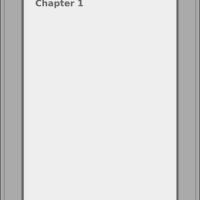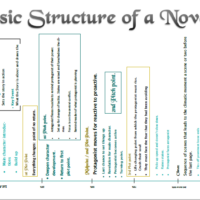Ethical practices
Authors,
I ask now for you to put yourself in the role of a freelance editor. Now, imagine a situation whereby a client approaches you, accepts a quote, goes through the sample edit process etc, and after a week of schedule-juggling, they promise to send the rest of the service agreement paperwork back to you that day. All good so far. Now, consider how you would feel if the job you had worked extremely hard to win was suddenly taken from you because the cancelled on the grounds that a quote your client has just received another quote for ‘considerably less’ than the rate they were expecting to pay you. While the second editor in the above scenario may have had no idea that a contract and a price had already been agreed (bar signing on the line), the author most certainly did know and actively chose not to disclose the fact. They choose, instead, to disregard past promises as and when they saw an immediate advantage. Is such a person likely to prove trustworthy in the future? Unlikely, and I would caution editors away from future professional engagement with those who have acted in such a manner.
When you take on an editor, you are entering into a business relationship which requires a high level of mutual ethical conduct and trust. This relationship is far more formal than that of a consumer/retailer or service provider. In a business relationship, there are some basic rules which determine its success. One such rule is to treat others with the same honesty, respect fairness that you expect to be treated with. In business, all is not fair. A promise is a promise and honesty is always the best policy. If you are an author and find yourself in a situation where you must make up a story in order to get out of a promise or an obligation, the likelihood is that you already know that you are behaving unethically. Would you take on an editor with a reputation of behaving dishonestly?
The indie author community is growing but is still fairly new. You know the constant uphill struggle of finding editors and agents willing to take you on. The struggle is the same for editors who are trying to make a living in an industry with limited cash flow. That said, most of us will not willingly undercut one another, or poach clients. If given the full facts the above latecomer would probably walk away. The author opted to deny them the opportunity to make an informed choice. Writers and the creative community as a whole have a responsibility to display demonstrable honesty in our dealings with each other and treating even freelances editors poorly, or sowing mistrust between us, will reflect badly on the emerging industry. It could even be used to justify the remaining prejudice against self-published authors.
My advice if you ever find yourself in the above situation as an author is that if a late quote comes in after you have made a promise, then it is the ethical decision to thank them but let the latecomer know that you have already accepted another editor. You don’t necessarily have to let them know what you are paying, but give them the opportunity to step back. If they then try to undercut the accepted offer, you will know what sort of person you are dealing with. Deception by omission is still deception, and clients can earn a reputation for bad practice as easily as editors can. Think carefully about how you conduct yourself. A good editor, treated well could last your entire writing career. Treat them badly and you could end up with a long list of people who simply will not work with you.













